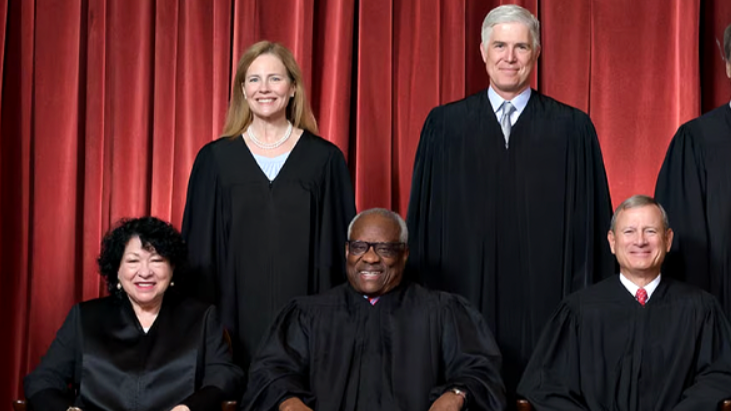Trump Issues Urgent Last Minute Request To Supreme Court

The Supreme Court, influenced by President-elect Donald J. Trump, has agreed to delay a looming deadline that would impose a statewide ban on TikTok, a massively popular social media app, unless its Chinese parent company, ByteDance, transfers its U.S. operations to an American entity. The deadline, scheduled for January 19, a day before Trump’s inauguration, has ignited a constitutional debate surrounding executive authority, free speech, and national security.
In a 25-page amicus brief filed on Friday, Trump argued for a more cautious approach, requesting the court to stay the deadline. He emphasized that his incoming administration should be allowed to explore a political resolution that upholds the free speech rights of TikTok’s 170 million American users while addressing the national security risks tied to its Chinese ownership.
“This case presents an unprecedented and novel tension between free-speech rights on one side and foreign policy and national-security concerns on the other,” the brief states. “As the incoming Chief Executive, President Trump has a particularly powerful interest in and responsibility for those national-security and foreign-policy questions, and he is the right constitutional actor to resolve the dispute through political means.”
Under the Protecting Americans from Foreign Adversary Controlled Applications Act, ByteDance faces a requirement to divest its U.S. TikTok operations by January 19 or risk a nationwide ban. The federal government views TikTok as a significant national security threat, citing concerns that the Chinese government could exploit the app to monitor U.S. citizens or influence public opinion.
Opponents of the Act, including Trump, argue that the government has not adequately balanced these concerns against the fundamental rights of TikTok users. The brief highlights TikTok’s role as a platform for free expression, political discourse, cross-cultural engagement, and economic opportunity.
The brief also underscores Trump’s vested interest in the First Amendment issues at play. It claims that his “historic victory on November 5, 2024,” reflects a strong electoral mandate to safeguard free expression, including the rights of TikTok’s 170 million users.
Trump’s filing raises concerns about legislative overreach, suggesting that the Act infringes on the Executive Branch’s authority in foreign affairs. By setting the deadline, Congress has limited the incoming administration’s ability to negotiate a resolution with ByteDance and the Chinese government. “This is a matter where the Nation must speak with one voice,” the brief asserts, referencing the President’s constitutional role in international relations.
This case has attracted significant attention due to its potential to establish new legal precedents regarding the regulation of social media and foreign-owned tech companies. Trump’s brief urges the Court to prioritize “careful, deliberate consideration,” citing past rulings where political discussions were given extended timeframes.
The controversy surrounding TikTok, owned by the Chinese company ByteDance, continues to escalate amid mounting national security concerns. President Joe Biden signed legislation requiring ByteDance to sell TikTok’s U.S. operations by January 2025 or face a potential ban, citing fears of Chinese government access to American user data.
TikTok has contested the law in court, arguing that it violates constitutional rights, including the First Amendment. While a federal appeals court upheld the legislation in December 2024, TikTok plans to appeal to the Supreme Court, seeking an injunction to prevent the ban from taking effect during ongoing litigation.
Public opinion on the issue remains divided. Recent polls indicate that Americans are increasingly split over balancing data privacy, free speech, and national security, with support for the ban waning. The Supreme Court is set to hear arguments in January 2025, a decision poised to shape the future of global tech regulation and digital rights.
The fate of TikTok in the U.S. remains uncertain.